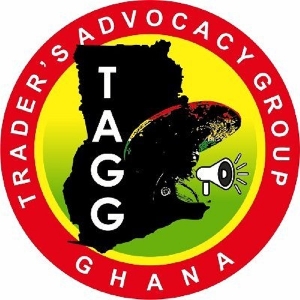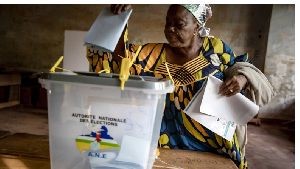Nana Kwasi Acheampong, Programmes Coordinator at Intervention Forum (IF), a non-governmental organisation, has reiterated the need for citizens to take interest in sanitation issues, since a sustainable sanitation is a shared responsibility.
He noted that there was the need for the civil society organisations (CSOs), the public and elected local leaders, to play their role effectively to ensure that sanitation and hygiene related issues were addressed.
Mr Acheampong said this in an interview with the Ghana News Agency on the sidelines of a focus-group discussion at Ofaakor in the Awutu Senya East Municipality (ASEMA) of the Central Region.
The meeting, organised by IF registered 25 participants, and was held under the SNV Netherlands Development Organisation's Voice for Change Partnership (V4CP) programme.
The project which focuses on building the capacities of communities to deal swiftly with sanitation and hygiene issues in the district; and is being implemented by SNV Netherlands Development Organisation.
The discussion focused on various areas such as the provision of improved solid waste disposal options/services; public places, cleaning of streets and drains, provision of inclusive/disability friendly institutional and public toilet facilities, and support towards improved household toilet facility construction.
The participants were drawn from three communities from the three zonal areas within the municipality, specifically, Ofaakor, Opeikuma, and Kasoa Zongo.
They were taken through the use of the community scorecard tool to evaluate the sanitation and hygiene services provided by the Assembly as well as key management companies, to ascertain the level of satisfaction with the services they offered.
Mr Acheampong told the GNA that in 2018 a similar activity was held to determine baselines in terms of citizens’ satisfaction with sanitation and hygiene service delivery by both the Assembly and Zoomlion.
He said for this year, IF having used the baselines to engage the ASEMA, they sought to come back to engage with citizens again, to ascertain the progress which was being made in terms of the service delivery.
This, he noted was because the Assembly made several promises and took several steps which IF could verify on the field; that they were working towards these promises.
Mr Acheampong highlighted one key objective of the meeting was essentially to open the eyes of citizens as to the work IF did last year; firstly, to let them know the progress of work, and to get their inputs with which they would engage the Assembly.
“This is one of the key requirements of the V4CP, a five year programme being implemented by SNV Netherlands Development Organization and funded by the Dutch Ministry of Foreign Affairs”, he added.
The key concerns raised by the participant include issues related to open defecation, dumping of rubbish in drains, and overflowing refuse containers that remained uncollected by waste management companies.
They also called for strict enforcement of district assemblies’ bye-laws and severe sanctions for sanitation offenders to serve as a deterrent to others.
Mr George A. K. Gharbin, a resident of Opeikuma, called for a regular visitation by the Assembly, especially its sanitary inspectors.
He said open defecation was still a challenge within the Municipality, saying, because the monies being charged by public toilet operators was high, people prefer defecating in the open.
Mr Gharbin called on government to partner organisations such as Plan International Ghana, who were known to be spearheading the construction of household latrines for people.
Mrs Lydia Antwi, a teacher at Opeikuma Saint Peter’s Anglican School, noted that among their major challenges at Opeikuma were drainage system and lack of household latrines, however, IF had been very supportive and helped to address most of the challenges.
She encouraged other communities to take part in IF’s exercises, so as to put up their challenges across and expressed the hope that ASEMA would come to their aid.
Mrs Antwi further noted that as teachers they have joined the campaign to sensitize the public on good sanitation practices, saying, anytime there was a Parent Teacher Association (PTA) meeting, they would talk about sanitation.
“We will also join the health officers anytime they organize a durbar, and when we get involved, we go there to talk about hygiene,” she added.
Health News of Tuesday, 5 November 2019
Source: ghananewsagency.org













